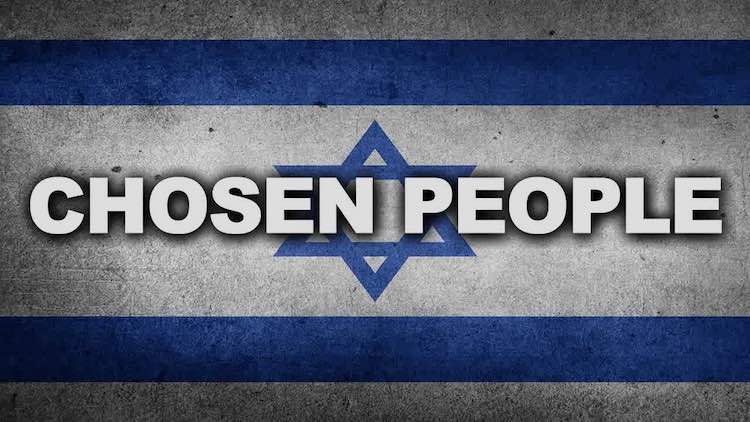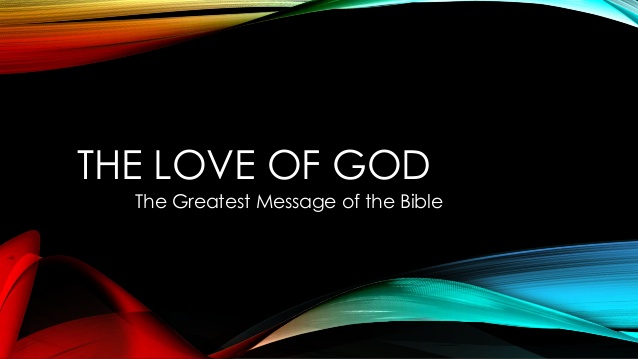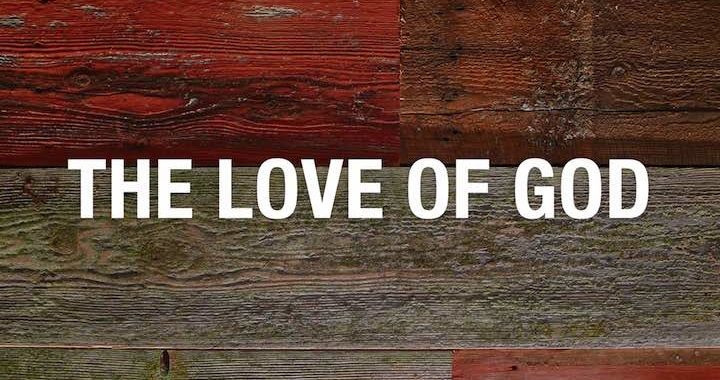Does God love everyone?
The story of Jacob and Esau is the story of love and rejection. Jacob was loved by his mother while Esau was loved by his father (Gen. 25:28). What started out as family favoritism expanded into a spiritual reality as God Himself not only chose to love Jacob but utterly rejected Esau. Why does God choose to love one person and reject another? I believe the answer to this question is found in this week’s Torah Portion as we study it in its biblical context.
This week’s Torah Portion is called “תולדות” – “Toldot” – “generations,” referring to the “generations of Isaac,” and begins with an introduction of the first two patriarchs: “Now these are the records of the generations of Isaac, Abraham’s son: Abraham became the father of Isaac;” (Gen. 25:19). Isaac married Rebekah and they had twin boys, Jacob and Esau, who were constantly striving with one another.
Jacob & Esau
The story of Jacob and Esau began before they were born. Their mother, Rebekah, sought the LORD during her pregnancy to understand why there was a struggle in her womb and the LORD answered her:
The LORD said to her, “Two nations are in your womb; and two peoples will be separated from your body; and one people shall be stronger than the other; and the older shall serve the younger.” – Gen. 25:23
Jacob and Esau came into the world and both fulfilled their destinies as God had prophesied to Rebekah. Although Jacob was the younger, he acquired the birthright and the blessing of the firstborn.
Watch this video for a brief summary of this week’s teaching:
Two Sons, Two Destinies
Jacob and Esau as twin brothers could not have been more similar to one another and at the same time different in every way: “When the boys grew up, Esau became a skillful hunter, a man of the field, but Jacob was a peaceful man, living in tents.” (Gen. 25:27) Esau was a man of action, a man’s man who was an outdoorsman and a hunter, whereas, Jacob was a peaceful man who preferred to stay at home, to live in tents.
Beyond the manner in which they lived, as noted above, Jacob and Esau became two distinct nations; the nation of Israel and the nation of Edom. As two separate nations, they represented two unique sons with two different positions before God:
“I have loved you,” says the LORD. But you say, “How have You loved us?” “Was not Esau Jacob’s brother?” declares the LORD. “Yet I have loved Jacob; but I have hated Esau, and I have made his mountains a desolation and appointed his inheritance for the jackals of the wilderness.” – Malachi 1:2-3
Jacob, the father of the nation of Israel, was loved and blessed by God, whereas, Esau, the father of the Edomites, was hated and rejected by God.
Why does God love one person and reject another?
Love & Rejection
The prophetic reality of Jacob and Esau present a challenge to our mortal minds in understanding how Almighty God can make such an absolute statement as quoted above in the prophet Malachi. Does God not love everyone? On what basis does God choose one person and reject another?
There is no easy answers to the questions above. Although it is true that God has a universal love for all of the world and desires every person to know Him through His Son, Yeshua, it is also true that there will always be those who accept God’s invitation of love and forgiveness and those who reject it (John 3:16-21).
The Mercy of God
In connection to the mystery of God in choosing to love one person and reject another in relation to Jacob and Esau (Romans 9:10-13), we read the following explanation in the letter of Paul to the believers in Rome:
What shall we say then? There is no injustice with God, is there? May it never be! For He says to Moses, “I will have mercy on whom I have mercy, and I will have compassion on whom I have compassion.” So then it does not depend on the man who wills or the man who runs, but on God who has mercy… So then He has mercy on whom He desires, and He hardens whom He desires. – Romans 9:14-16,18
Ultimately, it is only God’s mercy that enables us to know Him. God is just and God is merciful. We can only respond to His mercy with thanksgiving and praise.

The mercy of God is difficult for us to understand because it is not based on clear criteria that we can judge. God judges the heart and God alone knows the heart. God knew the heart of both Jacob and Esau before they were born and He determined the outcome of their lives based on His justice and His mercy. We read in the prophet Isaiah that God desires to be merciful to His creation:
Therefore the LORD longs to be gracious to you, and therefore He waits on high to have compassion on you. For the LORD is a God of justice; How blessed are all those who long for Him. – Isaiah 30:18
The justice and compassion of God are constantly calling out to all who will seek Him and wait for Him. The LORD longs for us to come to Him and to dwell in right relationship with Him through His compassion and mercy toward us.
Two Nations: Israel and Edom
As noted earlier, Jacob and Esau were not just twin brothers with different destinies, but they also became fathers of two distinct nations: Esau became the father of Edom (Gen. 36:40-43) and Jacob became the father of the nation of Israel (Ex. 1:1-7). Throughout the Bible these two nations represent humankind before God; Israel as the people whom God loves and Edom as the people who God hates and rejects.
These two nations illustrate God’s relationship to humankind and are not meant to be understood as a right of spiritual lineage. In other words, one was not inherently evil if he was born as an Edomite and inherently righteous if he was born an Israeli. However, God did use Jacob and Esau individually as well as Israel and Edom as nations to illustrate His Divine love and His Divine Justice as He saw fit.
The People of Israel
In the Bible we often see Israel representing God’s chosen people who walk in a unique relationship with the God of heaven and earth:
For you are a holy people to the LORD your God; the LORD your God has chosen you to be a people for His own possession out of all the peoples who are on the face of the earth.
The LORD did not set His love on you nor choose you because you were more in number than any of the peoples, for you were the fewest of all peoples, but because the LORD loved you and kept the oath which He swore to your forefathers, – Deut. 7:6-8
Throughout the pages of the Bible, the nation of Israel consistently represents a people that God has chosen to set His affection upon and to make His own. God’s choosing of Israel was not because of anything in them but rather it was based on His promise to Abraham, Isaac, and Jacob.

In the New Testament we also read about the people of Israel as the chosen people of God (Romans 11:1-2) together with the gentile nations who are grafted in to the people of Israel through faith (Romans 11:17-24). Jew and Gentile alike, who walk in covenant relationship with God, are included together as God’s people:
For neither is circumcision anything, nor uncircumcision, but a new creation. And those who will walk by this rule, peace and mercy be upon them, and upon the Israel of God. – Galatians 6:15-16
Every person who believes in the God of Abraham, Isaac, and Jacob through Yeshua the Messiah is considered to be part of the “Israel of God.”
The People of Edom
Esau was the father of the Edomites (Gen. 36:40-43) and the throughout the Bible the nation of Edom represents those who are rejected by God. Although Edom was an independent nation, it also represents the nations of the world who reject God:
…therefore thus says the Lord GOD, “Surely in the fire of My jealousy I have spoken against the rest of the nations, and against all Edom, who appropriated My land for themselves as a possession with wholehearted joy and with scorn of soul, to drive it out for a prey.” – Ezekiel 36:5
In these verses, God is judging the nations of the world that divide up the Land of Israel. The nations are represented by the nation of Edom.
Edom and The Nations
We also read in the book of the prophet Isaiah how God’s judgement against the nations is embodied in the nation of Edom:
Draw near, O nations, to hear; and listen, O peoples! Let the earth and all it contains hear, and the world and all that springs from it. For the LORD’s indignation is against all the nations, and His wrath against all their armies; He has utterly destroyed them, He has given them over to slaughter.
For My sword is satiated in heaven, behold it shall descend for judgment upon Edom and upon the people whom I have devoted to destruction. – Isaiah 34:1-2,5
Edom represents the nations and peoples that come against Israel and oppose God’s plan and purpose. In the last days, God will judge all those nations and peoples who identify with Edom.
The Rejection of Esau
In the New Testament, Esau is used as an example of a person who does not know God and is rejected by God for his actions:
See to it that no one comes short of the grace of God; that no root of bitterness springing up causes trouble, and by it many be defiled; that there be no immoral or godless person like Esau, who sold his own birthright for a single meal. For you know that even afterwards, when he desired to inherit the blessing, he was rejected, for he found no place for repentance, though he sought for it with tears. – Hebrews 12:15-17
There is a strict warning in these verses not to be like Esau, who was considered to be an immoral and godless person. Esau and Edom as a nation provide a biblical example of those whom God has rejected and have no part in God’s kingdom.

The Generation of Jacob
In Psalm 24, King David reminds us of the delicate dance between the sovereignty of a holy God and those who receive God’s mercy by sharing in relationship with Him:
Who may ascend into the hill of the LORD?
And who may stand in His holy place?
He who has clean hands and a pure heart,
Who has not lifted up his soul to falsehood
And has not sworn deceitfully.
He shall receive a blessing from the LORD
And righteousness from the God of his salvation.
This is the generation of those who seek Him,
Who seek Your face—even Jacob. Selah. – Psalm 24:3-6
Righteousness and salvation come from God alone. Holiness and purity are standards which God demands from all who seek to ascend His holy hill and to commune with Him.
The generation of Jacob represents a people who seek the face of God and walk in His holy ways. God is always searching for those who seek Him. God longs to be found by His creation and He longs to be merciful to those who call on His Name.

God’s Exclusive Love
In comparing the lives of Jacob and Esau, we see two distinct outcomes from two very different lives; one who sought God and one who never knew God. We never see any evidence of Esau seeking God or hearing God’s voice in his life. He lived his life as he saw fit and he was rejected by God. Jacob, on the other hand, constantly encountered God along his journey and sought the blessing of God throughout his life. Jacob was not a perfect man but he continually pursued God with his life and was shown mercy. The choice of God to love Jacob and to reject Esau was a sovereign expression of God’s justice and mercy in action.
God’s love for Jacob and for the nation of Israel was exclusive. We often think of love in a utopian manner as something all inclusive without any exclusion, however, the concept of “love” must be understood in the reality that “rejection” also exists. Just as holiness demands an understanding of sinfulness so love must exist in a reality where “rejection” also exists.
The love of God for Jacob and God’s rejection of Esau teaches us about the exclusivity of God’s love. God’s love is real and it demands our response. Let us be part of those who seek the face of God and are counted in the generation of Jacob!
Shabbat Shalom!
If you enjoyed reading this article, share it today with friends! We also invite you to sign up for our weekly Torah Portion commentary on the sidebar to the right.
Help keep our weekly commentaries free and available to all. Click here to donate today:
Torah Portion: Gen. 25:19 – Gen. 28:9
Haftara: Malachi 1:1 – Malachi 2:7
Return to Torah Portion Homepage
Copyright Jewels of Judaism. All rights reserved 2016



Thanks for raising up this difficult topic. I’ve been thinking of the meaning of love for awhile, especially when the voice of same-sex marriage getting stronger and stronger.
We are in a generation which seems to exalt love more than ever. But we, including me, not really understand what love is. So I appreciate you point out the nature of God’s love is exclusive and we have to understand love with the existence of rejection. This is quite different to postmodern thinking and yet the message that this generation needs.
Good point. Thanks Nancy.
Daniel